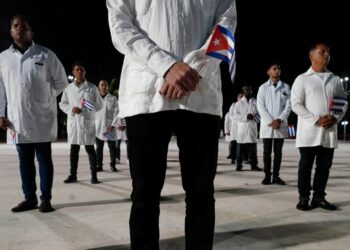
Jurors in the trial of former House speaker Michael Madigan are resuming deliberations Monday, their ninth day of discussions in the landmark public corruption trial.
As of Friday afternoon, the eight-woman, four-man jury had deliberated for about 50 total hours since getting the case Jan. 29.
Jurors on Friday sent their most substantive question so far, a deep-in-the-weeds request for clarification about how they should define “something of value.”
The note pointed out that in their legal instructions relating to four separate bribery counts, “bona fide” salary paid to someone “in the usual course of business” cannot qualify as “a thing of value.”
Jurors wanted to know if “bona fide salary” could be considered a valuable thing for the purposes of the separate wire fraud and travel act counts.
Ultimately, U.S. District Judge Edmond Chang — who was substituting for the case’s assigned judge, John Robert Blakey — said he would tell jurors that salary paid for jobs that were obtained via bribery is in fact considered a thing of value in the wire fraud and travel act charges.
He also said he would remind them to consider each count in the 23-count indictment separately.
The defense filed a motion early Monday seeking to give the jury another instruction explaining the answer to the question further.
Hanging in the balance is the fate of Madigan and his longtime right-hand man, Michael McClain.
The jury’s deliberations kicked off the final phase of a four-month trial. Its discussions have lasted longer than those in two other recent high-profile corruption cases: The jury in the “ComEd Four” bribery case, which featured evidence that overlapped significantly with some of the evidence in the Madigan trial, reached a verdict after about 27 hours. And jurors in the racketeering trial of former Ald. Edward Burke found him guilty in about 23 hours.
Still, the wait in other federal public corruption trials has been longer, including the 2011 retrial of former Gov. Rod Blagojevich, which ended in a conviction on almost all counts after more than 10 days of deliberations.
Madigan, 82, of Chicago’s Southwest Side, was for decades the most powerful man in Illinois politics, reigning over the state Democratic Party and setting a national record for longest-serving speaker of a state house. He is charged in a racketeering indictment that accused him of running his political and government operations like a criminal enterprise. McClain, 77, is a retired lobbyist from downstate Quincy.
Jurors have to consider 23 counts against Madigan alleging an array of schemes to enrich his political allies and line his pockets. McClain is charged in six of those counts.
In addition to alleging plans to pressure developers into hiring Madigan’s law firm, the indictment accuses Madigan and McClain of bribery schemes involving ComEd and AT&T Illinois, where the utilities allegedly funneled payments through do-nothing subcontracts to a handful of the speaker’s closest allies.
To assist their deliberations, jurors have about 100 pages of legal instructions, dozens of undercover recordings, and hundreds of emails, texts and other documents entered into evidence.







